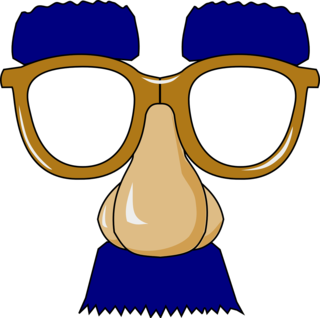Addiction
Pseudoscientific Treatments for Addiction are Everywhere
...and they're harmful.
Posted December 11, 2020 Reviewed by Devon Frye
You do not need statistics to know that addiction is a ravaging worldwide health condition. But here are some disturbing ones anyway: The United Nations estimated that the global burden of disease due to drug use was 42 million years of “healthy” life lost. It has also been estimated that worldwide, about 100 million people suffer from alcohol addiction symptoms, and about 35 million suffer from drug addiction symptoms. This is harrowing.
Worse, the majority of people who experience addiction do not receive effective treatment based on scientific evidence due to lack of availability and accessibility—and the United Nations has rightly called upon national governments and the international community to step up interventions to address this gap.

Worse still, this gap is often filled by non-evidence-based and pseudoscientific treatments.
As a clinical psychologist in Canada that treats addiction, it is not uncommon for me to regularly encounter patients who have received such treatments for their addiction concerns, which can include: naturopathy, energy medicine, hypnosis therapies, and animal-assisted therapies, among myriad others. All one has to do is a simple Google search of these treatments coupled with the keyword “addiction” to bear witness to their prevalence.
This irks me—and it should irk you too. While the demarcation between science and pseudoscience has always remained fuzzy, health care professionals have an ethical duty to scientifically and critically appraise therapies so that they can deliver the most effective and safest care.
This ethical imperative remains especially true in the case of unequivocal pseudoscientific therapies that are divorced from the broader scientific literature. Here are some examples.
Naturopathy
Naturopathy, defined by the Canadian Association of Naturopathic Doctors, is an umbrella term for a host of treatments that adopt a philosophy “to stimulate the healing power of the body and treat the underlying cause of disease.” Problematically, the precise nature of how naturopathy treats the underlying cause of addiction remains unclear and dependent upon the often implausible theoretical rationale for the particular naturopathic treatment. One such treatment is homeopathy, which is a pseudoscientific, widely discredited, and unsafe approach to health, wherein the final product is typically just distilled water. Unfortunately, naturopathic treatments for addiction are widely promoted in popular media and alternative medicine circles.
Energy medicine
This is a branch of alternative medicine that employs a variety of energy healing therapies, such as Reiki, Polarity Therapy, Healing Touch, Craniosacral Therapy, etc. They are premised on ideas that violate fundamental concepts in modern biology and physics, such as the notion that these therapies can change “energy balances in the human biofield or human energy field.” Even the National Center for Complementary and Integrative Health has noted that the human energy field does not exist and that Reiki hasn’t been shown to be effective for any health-related purpose. Unfortunately, the scientifically unconvincing rationale and lack of evidence supporting energy medicine have not stopped its marketing towards the treatment of addiction.
Hypnosis therapies
Hypnosis or hypnotherapy involves the induction of a deeply relaxed state—sometimes called a hypnotic trance—and frankly, there is much debate about whether it can exert a therapeutic effect. Investigation into the area of cigarette smoking boasts the most research, whereby a recent Cochrane review of 14 studies concluded that there is no clear evidence that hypnotherapy is better than other approaches; and that any small benefits observed in the research literature need to be interpreted with caution due to high risk of bias.
More concerning is when the use of hypnosis is hijacked and incorporated into more unequivocal pseudoscientific therapies. For example, past life regression therapy has been used to treat psychiatric disorders and addiction by using hypnosis to "recover" memories from events that an individual went through before they were born in this life. It is clearly unethical and potentially harmful.
Animal-assisted therapies
Despite being marketed as a fun and calming way to treat addiction, research on animal-assisted therapies—such as wolf-, dolphin-, and equine-assisted therapies—has been plagued with severely flawed data and conclusions. Ethical concerns have also been raised from the standpoint of captive animal welfare and the risk of disease spread.
Dishonorable mentions
Unfortunately, there is an innumerable amount of addiction treatments that exist with implausible scientific rationales and unsurprisingly pseudoscientific names. If you are up for a venture down a rabbit hole, try Googling hyperbaric oxygen therapy, biosound therapy, and the Church of Scientology’s Narconon program.
The gray zone
The identification of pseudoscience is best achieved via a constellation of warning signs rather than a single demarcation criterion. As opposed to treatments that are unabashedly pseudoscientific, there are many that live in the gray zone with muddy albeit plausible mechanisms of change and insufficient or mixed evidence bases.
For example, 12-step programs—such as Alcoholics Anonymous (AA) and Narcotics Anonymous (NA)—have always been controversial in the addiction community. They are highly variable in terms of their nature and quality, whereby the more structured programs have better empirical support. Unfortunately, they can become problematic when they undermine other evidence-based treatments; such as in the case of opioid addiction, where one of our first-line treatments is opioid agonist therapies (OAT), the use of which can sometimes violate the philosophy of 12-step programs that view addiction as a lifelong disease requiring strict abstinence from substances.
What’s the solution?
Addiction is a multi-causal phenomenon and requires a multi-pronged solution that addresses many levels of analysis, from the biological and psychological, to the socio-cultural and systemic. More simply and sadly, we need better addiction treatments because not everyone benefits from our best ones. While the pursuit of better treatments remains the mandate of researchers and scientists around the world, there are many psychosocial and pharmacological treatments that do indeed have a strong empirical base and sound theoretical rationales. We need to increase access to these evidence-based treatments in the context of interdisciplinary care.
We do not need to tolerate pseudoscientific treatments for addiction. The late and trailblazing psychologist Scott O. Lilienfeld made clear exactly why pseudoscientific therapies can be harmful: they can directly produce harm, they indirectly deprive time and financial resources from supported treatments, and they can further erode the foundations and trust in scientific professions that employ their use.




